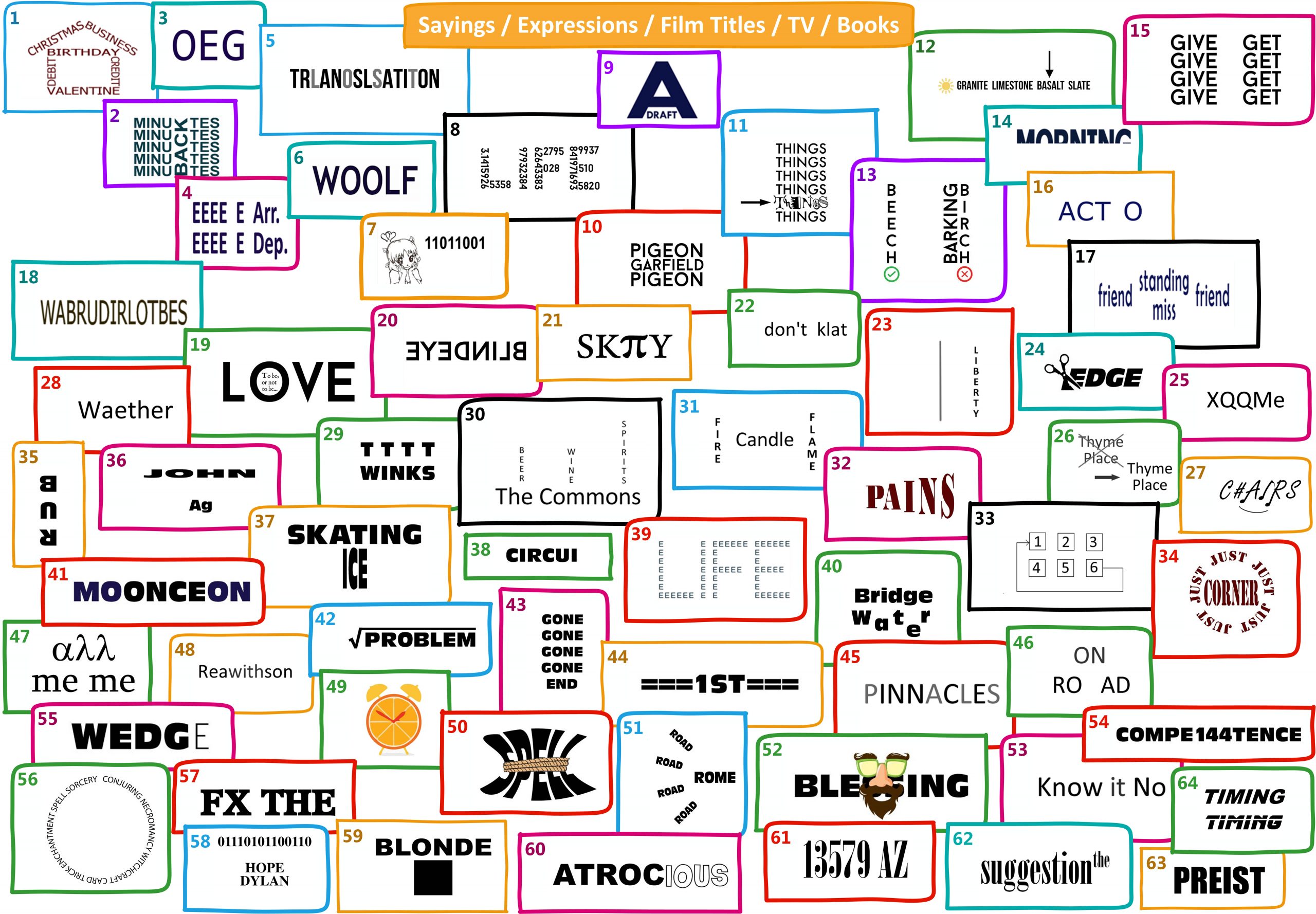English is a language with a huge vocabulary with many words that the average person is unaware exist. We’ve gathered here a few of the more unusual ones for you to test your wordpower (or ability to give a good guess) against. So see how you do by matching each of the, bizarre but real, words below to one of the multiple possible definitions.
| Vocabulary Ratings | ||
| 15-14 correct | …………………………… | excellent |
| 13-11 correct | …………………………… | good |
| 10-9 correct | …………………………… | fair |
<b>(1) crambazzled</b> <i>adj</i> <b>A:</b> exhausted after shopping. <b>B:</b> aged by drink. <b>C:</b> full after a big breakfast.B: prematurely aged by drinking. “Keith Floyd looked crambazzled after a lifetime in the kitchen.” Yorkshire slang, 19th century.
|
<b>(2) ostrobogulous</b> <i>adj</i> <b>A:</b> bizarre. <b>B:</b>large-mouthed. <b>C:</b> crunchy.A: bizarre. Derivation unknown.
|
<b>(3) fornale</b> {four-nali} <i>v</i> <b>A:</b> bake at low heat. <b>B:</b> kiss without enthusiasm. <b>C:</b> spend unearned money.C: spend money before you’ve earned it “When the ship docked, the sailors fornaled two days before payday.” 15th-century English.
|
<b>(4) cagg</b> <i>n</i> <b>A:</b> miner' cough. <b>B:</b> climber's penknife. <b>C:</b> vow to stay sober.C: solemn vow not to get drunk. 19th-century English military slang.
|
<b>(5) macrology</b> {mack-rol-ojee} <i>n</i> A; tedious and empty talk. <b>B:</b> long view. <b>C:</b> marine science.A: tedious and empty talk.”The party was rich in macrology.” Greek macros (long) and logos (word).
|
<b>(6) accidie</b> {acid-ee} <i>n</i> <b>A:</b> stale white wine. <b>B:</b> apathy. <b>C:</b> spiteful gossip.B: apathy.”His accidie deepened as he waited on Platform 8″
Latin accidia (listlessness).
|
<b>(7) quidnunc</b> <i>n</i> <b>A:</b> charming scrounger. <b>B:</b> corrupt priest. <b>C:</b> someone desperate for news.C: someone desperate toknow what’s going on. Latin quid nunc (what now).
|
<b>(8) dudgeon</b> {dudj-un} <i>n</i> <b>A:</b> damp basement. <b>B:</b> belt buckle. C. resentful anger.C: resentful anger. “He stormed off the X-Factor set in high dudgeon.”
Old English (the wood used to make dagger hilts).
|
<b>(9) deipnosophist</b> {dayp-noh-sofhst} <i>n</i> <b>A:</b> sleepwalker. <b>B:</b> lightning conductor. <b>C:</b> dining companion.C: brilliant dining companion. “The deipnosophist made up for the salmon mousse.” Greek dapnon (dinner) and sophos (wise).
|
<b>(10) cachinnate</b> {kak-in-ate} <i>v</i> <b>A:</b> shake uncontrollably. <b>B:</b> hoard money. <b>C:</b> laugh loudly.C: laugh loudly. Latin cachinare (laugh loudly).
|
<b>(11) dundrearies</b> <i>n</i> <b>A:</b> side-whiskers. <b>B:</b> hidden rocks at sea. <b>C:</b> extreme terror.A: long side-whiskers. Victorian English, from the character Lord Dundreary in the 1858 play Our American Cousin.
|
<b>(12) godwottery</b> {god-what-eree} <i>n</i> <b>A:</b> old-fashioned language. <b>B:</b> missionary's speech. <b>C:</b> Elizabethan maze.A: pretentious use of old language. “Stephen Fry likes to mockgodwottery.” From the 19th-century English
exclamation.”God wot”
|
<b>(13) philtrum</b> <i>n</i> <b>A:</b> poisonous powder. <b>B:</b> groove below the nose. <b>C:</b> sail cotton.B: groove below the nose. “There was a thin moustache nestling on his philtrum. Latin philtrum.
|
<b>(14) smidsy</b> <i>n</i> <b>A:</b> soap dispenser. <b>B:</b> motorbike accident. <b>C:</b> love song.B: a motorbike accident. “The greasy road surface led to a boom In smidsies.” 20th-century acronym-Sorry, Mate, I Didn’t See You.
|
<b>(15) brendice</b> {bren-diss} <i>n</i> <b>A:</b> toasting cup. <b>B:</b> French beer waitress. <b>C:</b> canal boat.A: cup used to drink to another’s health. “We raised a brendice to absent friends” 17th-century English
|




